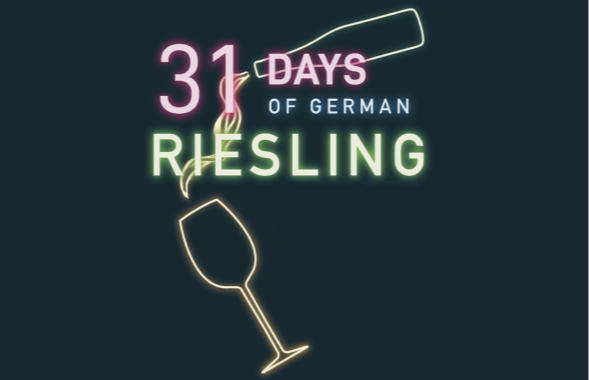
Preserving the Alentejo oak forest - one cork at time
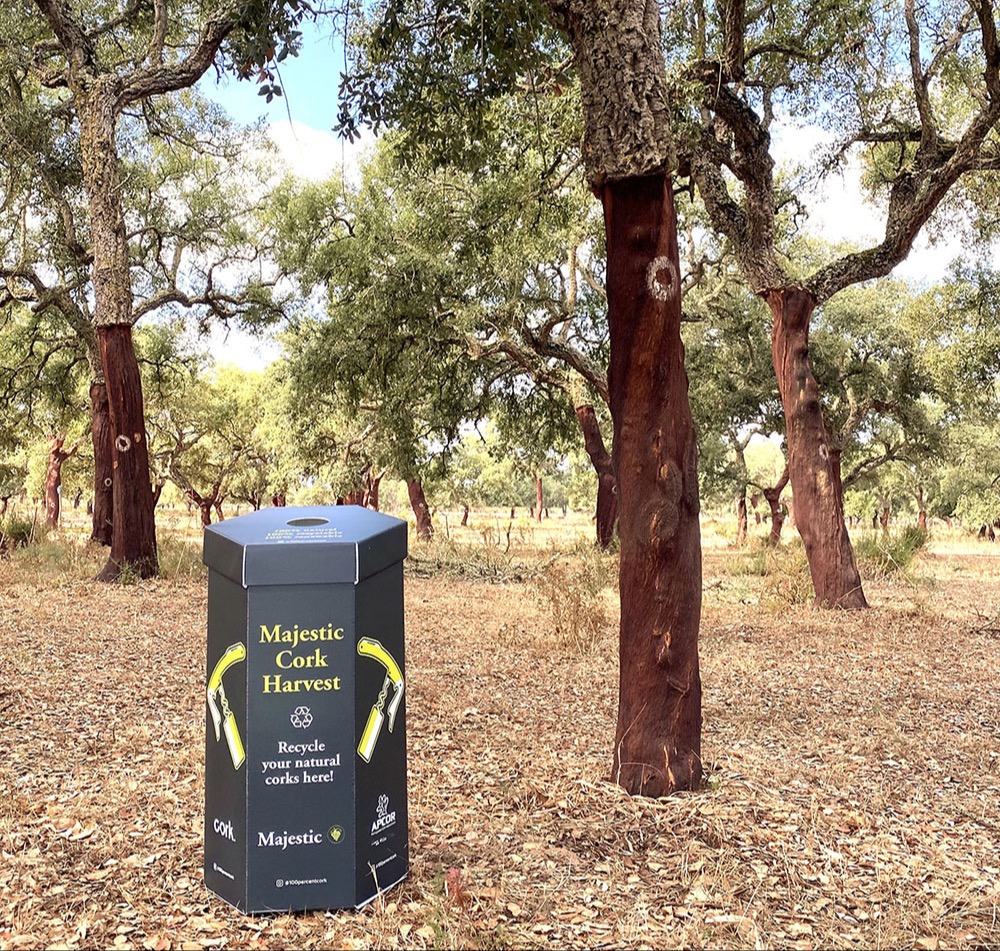
Overview
APCOR, the Portuguese cork association, came to Phipps in 2021 to raise awareness with consumers and the wine industry about the environmental benefits of using cork over other wine closures in the UK. The story that needed telling was clear; cork is harvested only from the bark of the cork oak tree and it is one of the most highly renewable and eco-friendly resources on the planet. Cork oak trees constantly regenerate and the cork oak forests in Portugal help offset at least 10 million tons of carbon every year. Choosing a wine with a natural cork stopper can quite literally help in the fight against global warming.
For consumers it was all about understanding that choosing a bottle of wine closed with a cork meant that they were making a good decision for the planet but also a good decision for themselves in terms of the quality of the wine they were buying. For the wine industry it was about demonstrating the benefits of cork over its biggest rival, the screw cap.
Challenge
In recent years, cork wine closures had been losing market share to screw caps. The challenge our campaign needed to address was to persuade consumers and the wine industry to put the Portuguese ecosystem above a screwcap when it comes to choosing what wine to drink.
And of course, it didn’t help that the cork industry had made it so easy for screw caps to gain ground; cork taint had been an issue for years spoiling an estimated 3% of wines under cork. But with new technology virtually eradicating cork taint, clearly there was an opportunity to turn things around.
Phipps not only understood our challenge but also created a campaign for positive change in our industry that will continue to roll out. With more retailers in the pipeline, we are excited for future UK Cork Harvests and what this means in securing the future of the cork forests in Portugal in the long term.
João Rui Ferreira, Vice-President of APCOR
Insight
The Wine Intelligence Landscapes Report in December 2020, showed that consumer attitudes to all wine closures had stablised in recent years with the majority of regular wine drinkers taking a neutral attitude to all closure types to the extent that closure affinity for natural cork and screwcaps were virtually identical. This created a strong enough position for a campaign aimed at consumers about the environmental benefits of choosing a wine with a cork closure.
In addition to this, Phipps commissioned a major piece of research with Nielsen analysing the price points of the top 1,500 best-selling wines in the UK and looked at which of these were closed using cork. The results showed us that consumers in retail pay on average £1.52 more for a bottle of wine closed with a cork. Similar research with CGA showed that the price difference even higher at £5.38 in restaurants and bars. We knew that this would be a key motivator for the wine trade and that encouraging them to sell wines closed with a cork could drive value into the category.
Our own research showed that consumers struggled to know how to dispose of corks – could they be put in the recycling bin or do they just go into landfill in the hope that they will decompose?
But the question remained, how could we reach consumers while they are making their wine buying decisions and encourage them to make the ‘right’ choice. Would it be possible to create a campaign that reached both consumers and the wine industry at the same time?
Strategy & approach
Knowing that wine with a cork costs more would motivate the wine industry and that consumers would at least be open to messaging around sustainability and the environment, Phipps saw the opportunity to create a campaign with a national wine retailer to reach a wide audience with messages around quality and sustainability.
The strategy was simple: harness the power of the retailer and use its reach and influence to educate consumers on the environmental benefits of buying wine with corks to ultimately create long lasting behavioural change. But we also wanted to find a use for all the corks that the scheme collected – to create a full circular economy from harvest to bottle to final use...
The cork recycling scheme, created with APCOR and Phipps, has been a gamechanger for Majestic in moving our sustainability credentials forwards. The campaign has galvanised our customers, suppliers and colleagues alike - seeing thousands of corks from being returned to our branches to start a new life at the Eden Project. The campaign had true, nationwide impact and there has also been tangible evidence that it has shaped customer behaviour.
Jack Merrylees , Head of Communications & PR for Majestic
Solution
Phipps’ solution was to create the UKs first ever ‘Cork Harvest’, a cork recycling initiative with wine retailer Majestic to educate consumers on the environmental benefits of using natural cork over screwcaps and to give them a place to bring their corks to recycle.
The ‘Cork Harvest’ campaign saw wine drinkers across the UK dropping off their used corks in specially designed ‘harvest bins’ in Majestic stores. Over 1,000 Majestic staff were trained to become ambassadors for the scheme and encourage their customers to join in. The bins were designed by Phipps and were placed in all 220 Majestic stores all over the UK from Inverness to Falmouth. To incentivise the Majestic staff, the store team who collected the most corks, had the chance to win a trip to Portugal to visit the cork forests and witness the cork harvest process first-hand. We encouraged the stores to take photos of the collection points, post on social media and talk about the campaign to the customers.
But what to do with the corks once they had been collected?
Our strategy had been for the campaign to run full circle and so Phipps entered into a partnership with the Eden Project whereby the corks were mulched and used in its Mediterranean Biome to enrich soils and protect roots systems.
We created a communications plan for consumer and trade to amplify the Cork Harvest and highlight the key messages and call to action. These included a consumer and trade launch campaign, picture story for trade media, a ‘sustainable Christmas’ PR campaign with wine writers and consumer media around natural cork CO2 retention properties.
To amplify this activity further, we promoted the UK Cork Harvest on the @100percentcork global social media channels which Phipps managed from a UK perspective. Additionally, we commissioned four lifestyle, environmental and wine influencers (see video) to create short form videos for Instagram to showcase the UK Cork Harvest on their platforms but also to cross promote on @100percentcork with media spend to gain traction with new audiences. Each influencer visited a Majestic store, dropped off natural corks that they had been collecting and included the key messages of the campaign as voiceovers and overlays, encouraging their followers to do the same.
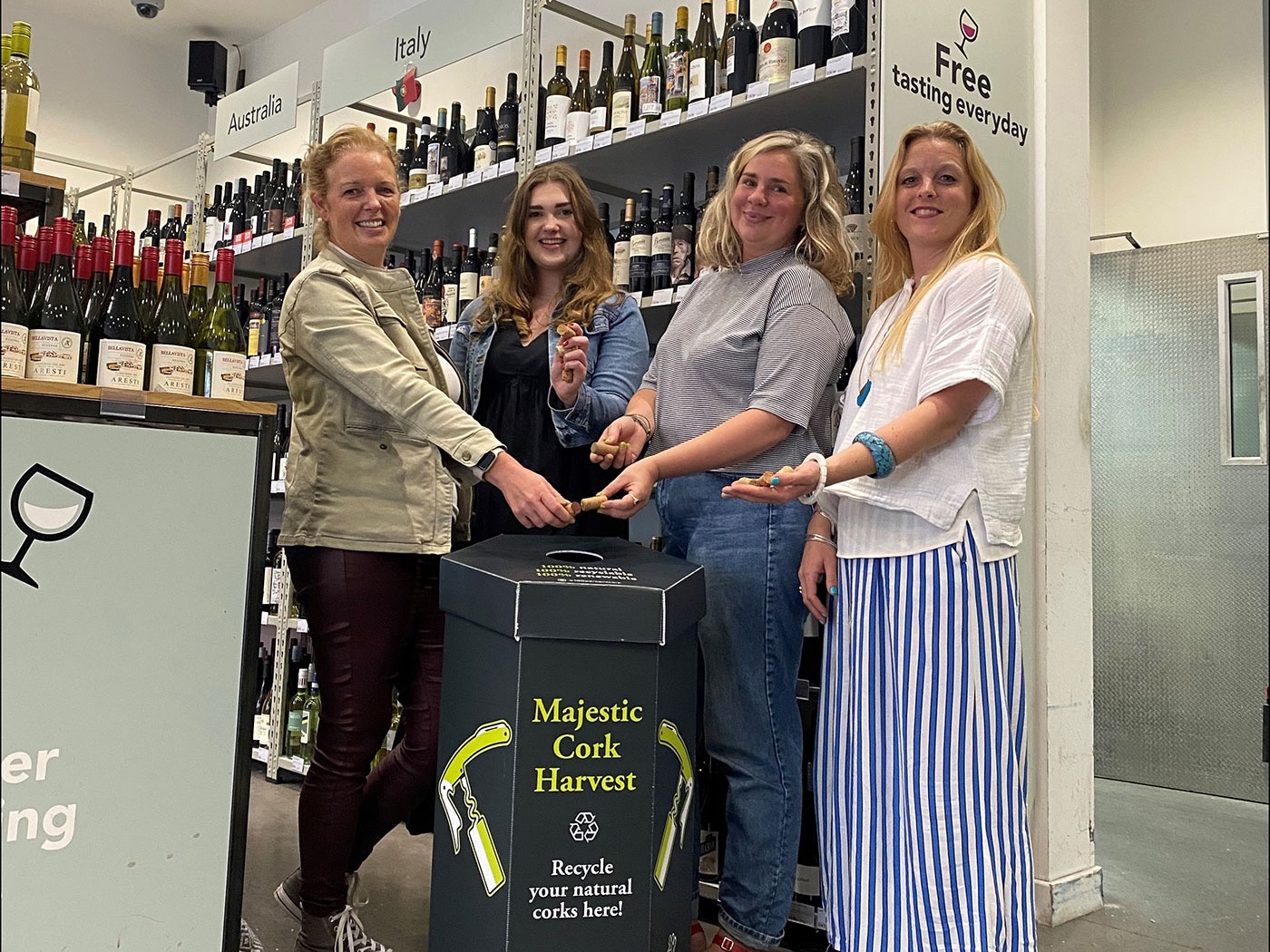
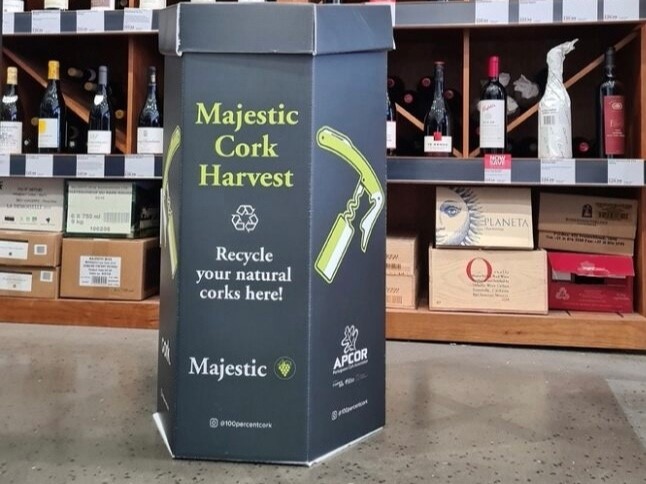
Results & learnings
Over a four month period (September 2021 – January 2022), the campaign saw 67,000 natural corks being collected and recycled across the UK, retaining over 20,700 kg of CO2, reducing waste in landfill, and producing cork mulch that protects the land and increases plant growth. All of this had been achieved because of the tactical results of the campaign Total PR reach was 18.6 million and social reach was 592,000 with over 6,440 engagements.
But more than that it has set in motion the wheels of change with Majestic committing to the Cork Harvest as a long-term activity and Phipps having been asked to help two major multiple retailers who are in the process of starting up their own recycling schemes in store.
The campaign was shortlisted for two major PR awards (Drinks Business and The Purpose Awards) and it is fair to say that the campaign results are ongoing even two years later.
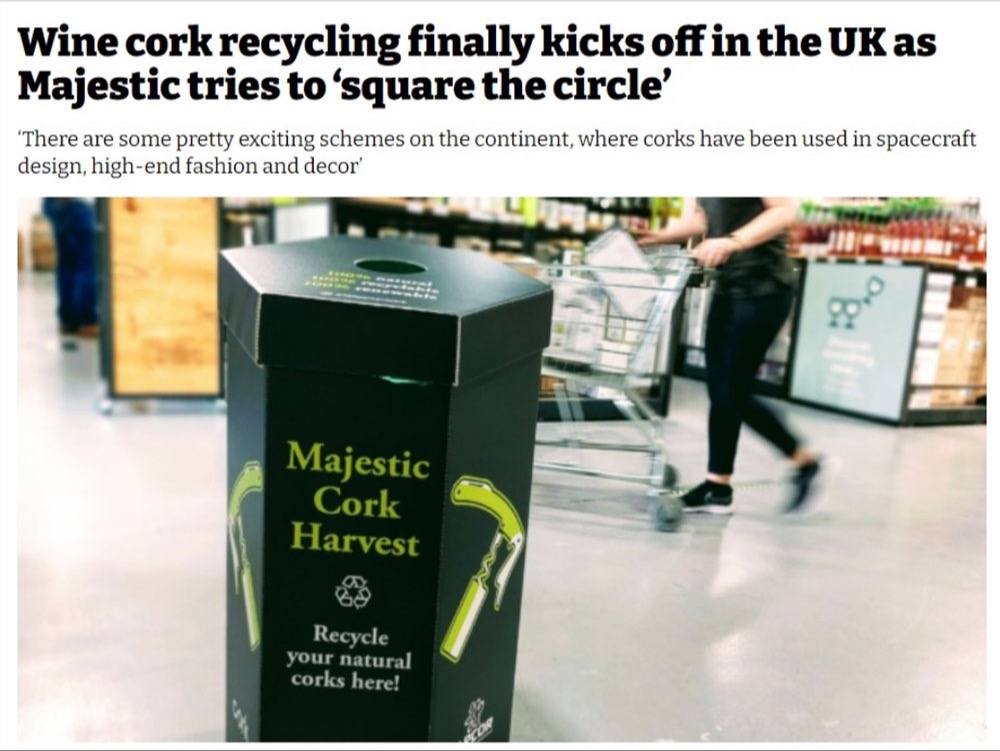
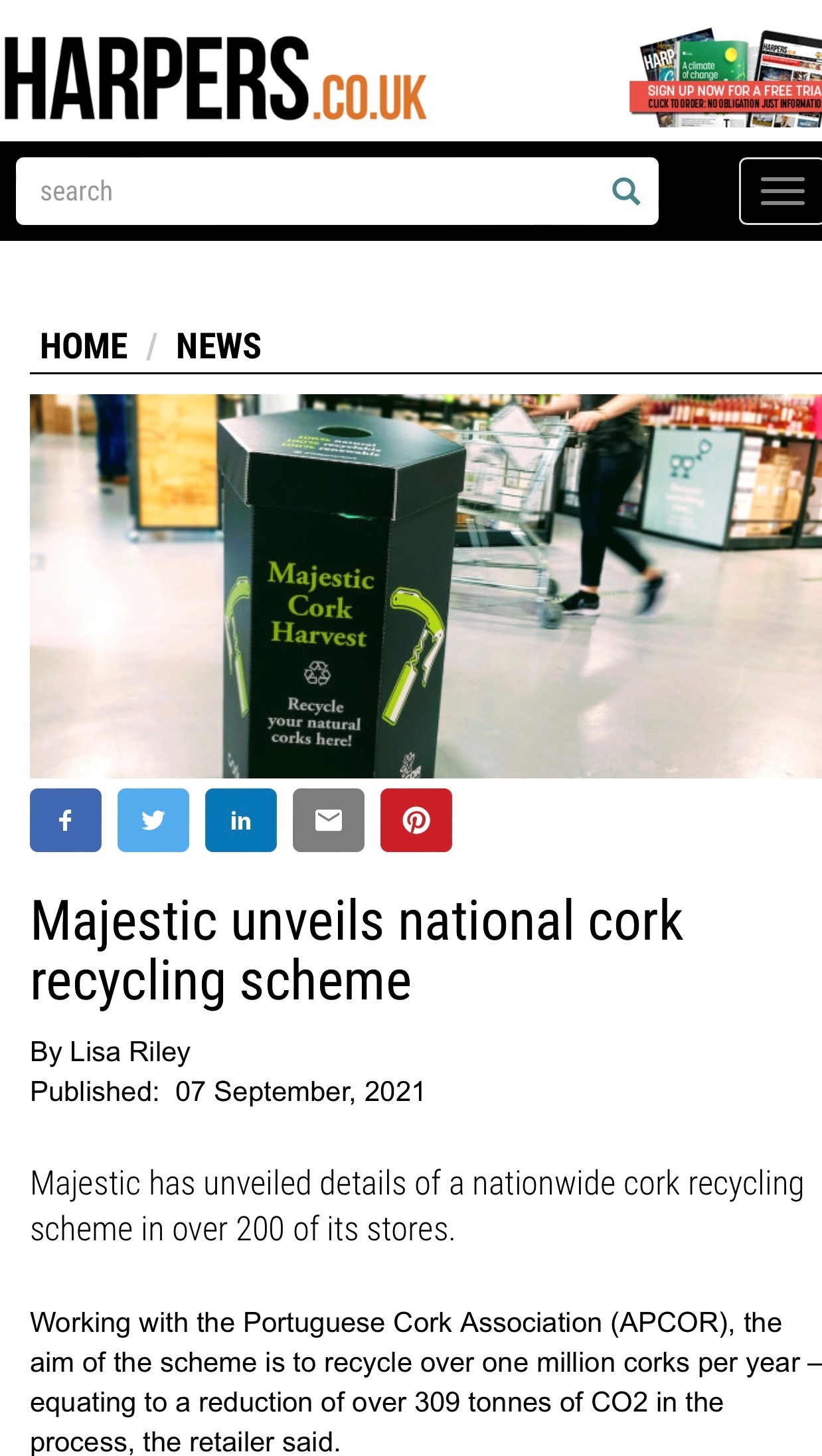
Share
Preserving the Portuguese cork oak forest ecosystem - one cork at time
APCOR came to Phipps to raise awareness about the environmental benefits of using cork over other wine closures. The story that needed telling was clear; cork is one of the most highly renewable and eco-friendly resources on the planet.
Business Objectives
Disciplines
Sector
Users who viewed this work also looked at:




